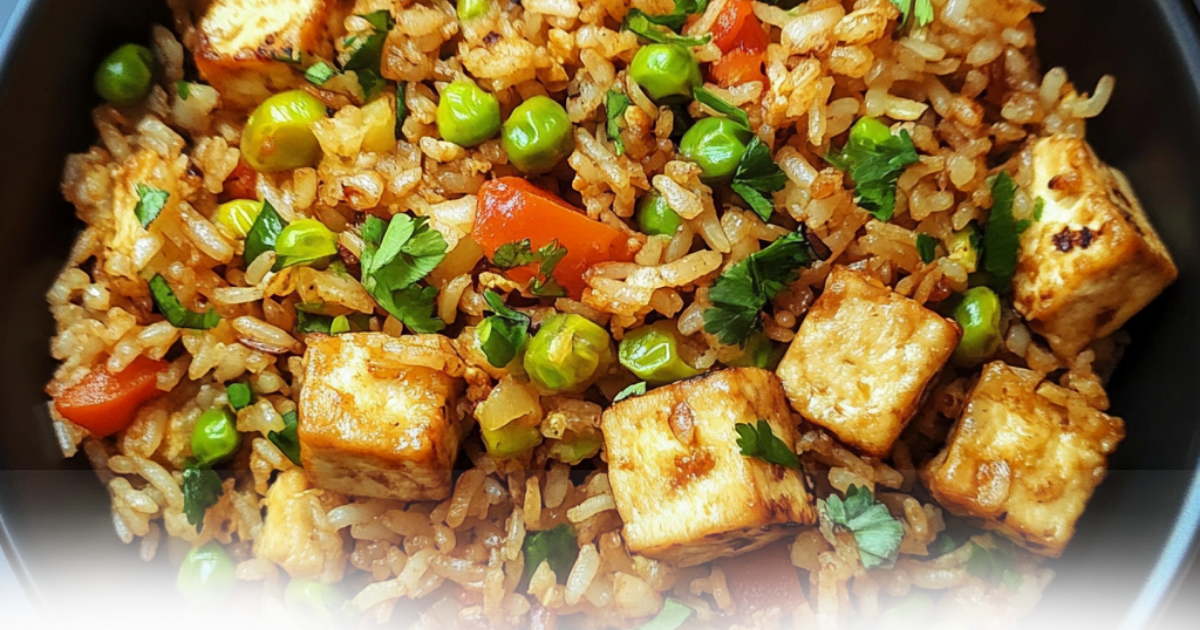Understanding the health implications of incorporating tofu and rice into your diet is crucial. Consequently, this article explores the components and benefits of these staple foods, specifically addressing the question: “Is tofu and rice healthy?” Moreover, we will examine each food’s nutritional content, subsequently exploring their roles in weight management, and further delving into their culinary versatility. Ultimately, each section will thoroughly answer the overarching query, thereby ensuring readers are well-informed.
Table of contents
Is Tofu and Rice Healthy? Exploring Tofu’s Nutritional Profile
Tofu, made from soybean curds, is packed with nutritional benefits. A typical serving contains a significant amount of protein, iron, and calcium, making it a fantastic choice for vegetarians and vegans. Importantly, tofu is low in calories but high in protein and essential amino acids. This makes it an excellent component of a balanced diet. The question, “Is tofu and rice healthy?” begins with tofu’s ability to supply crucial nutrients. It also offers minimal saturated fats, helping to maintain lower cholesterol levels and promoting heart health.
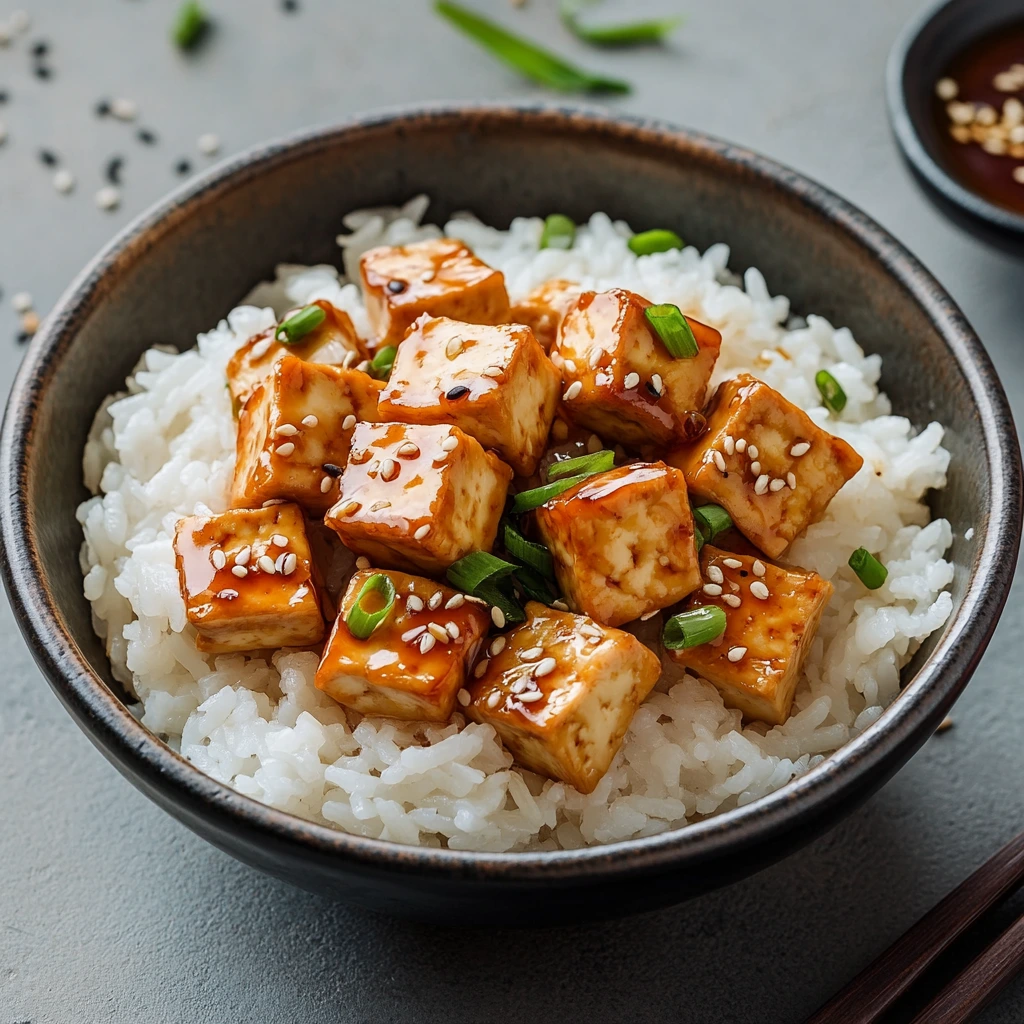
Learn more about tofu’s role in a balanced diet in our detailed guide on what to coat tofu in before frying for perfect results.
Is Tofu and Rice Healthy? Analyzing Rice’s Nutritional Profile
Rice, particularly whole grain varieties like brown rice, offers impressive health benefits. It is a good source of complex carbohydrates, fiber, and B vitamins. Brown rice provides more nutrients than white rice due to its higher fiber content, which aids in digestion and prolonged satiety. Including rice in your diet contributes to energy levels and supports metabolic health. When considering “Is tofu and rice healthy?”, the answer partly lies in rice’s capacity to be a foundational food that supports diverse dietary needs.
Is Tofu and Rice Healthy? Unveiling Tofu’s Health Benefits
- Protein Source: Tofu is an excellent source of protein, vital for muscle repair and growth.
- Heart Health: Regular consumption can reduce the risk of heart disease by lowering cholesterol levels.
- Bone Health: High in calcium and magnesium, tofu supports strong bones.
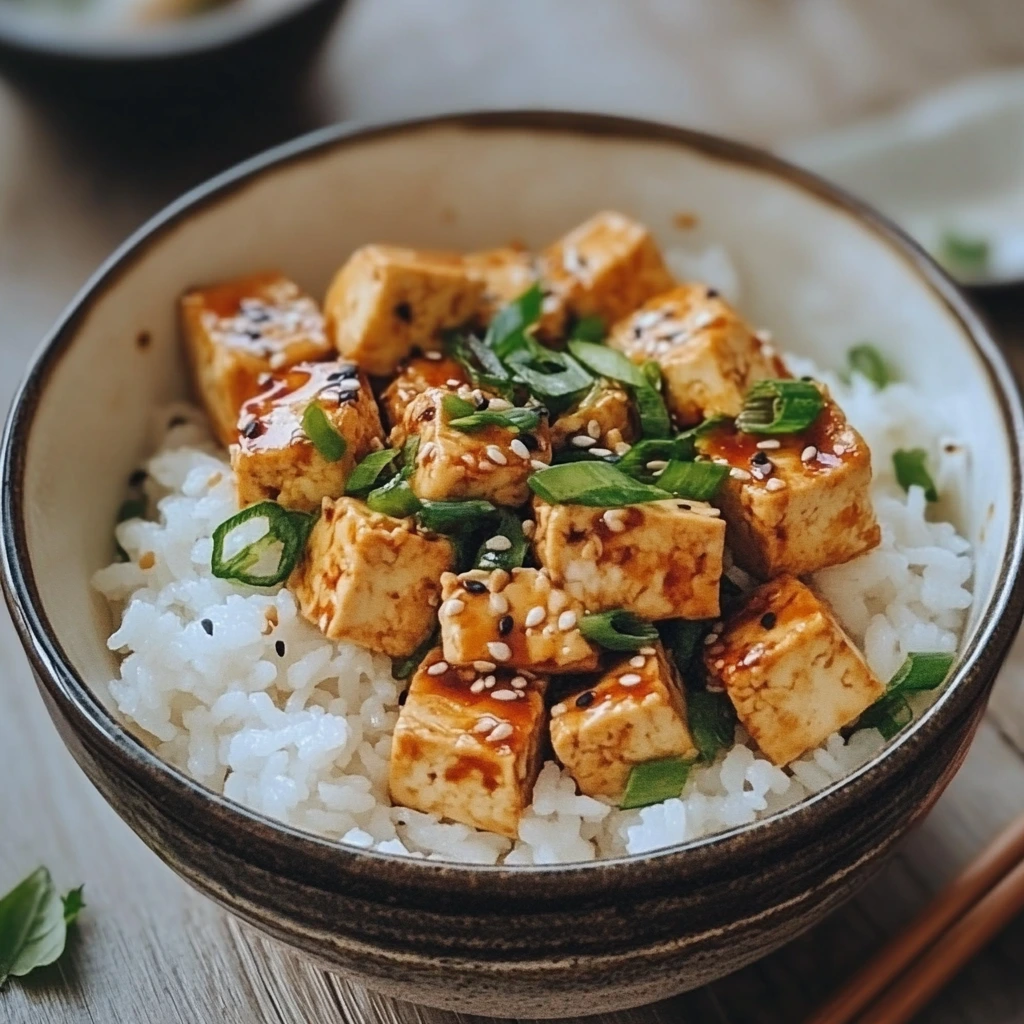
The health advantages of tofu extend beyond basic nutrition. Additionally, its isoflavones have been linked to reduced risks of several ailments, including osteoporosis and certain cancers. Therefore, addressing “Is tofu and rice healthy?” must include these wider health impacts. Furthermore, these findings emphasize tofu’s significant role in a nutritious diet.
Is Tofu and Rice Healthy? Revealing Rice’s Health Benefits
- Energy Booster: Rice is high in carbs, which provide the body with energy.
- Digestive Aid: Fiber in brown rice helps improve digestion.
- Disease Prevention: Antioxidants in rice can lower the risk of chronic diseases.
Rice’s health benefits are varied, depending on the type consumed. Whole grains, like brown rice, are particularly beneficial, offering antioxidants that combat free radicals. This makes rice not just a staple carbohydrate but also a component in disease prevention strategies.
Is Tofu and Rice Healthy? Evaluating Tofu in Weight Management
Incorporating tofu into a weight management plan is effective due to its low calorie and high protein content. Protein is essential for satiety, which can help control appetite and reduce calorie intake. The benefits of tofu in dieting are clear, making it an ally for those aiming to maintain or lose weight. Thus, answering “Is tofu and rice healthy?” includes acknowledging tofu’s role in supporting healthy weight goals.
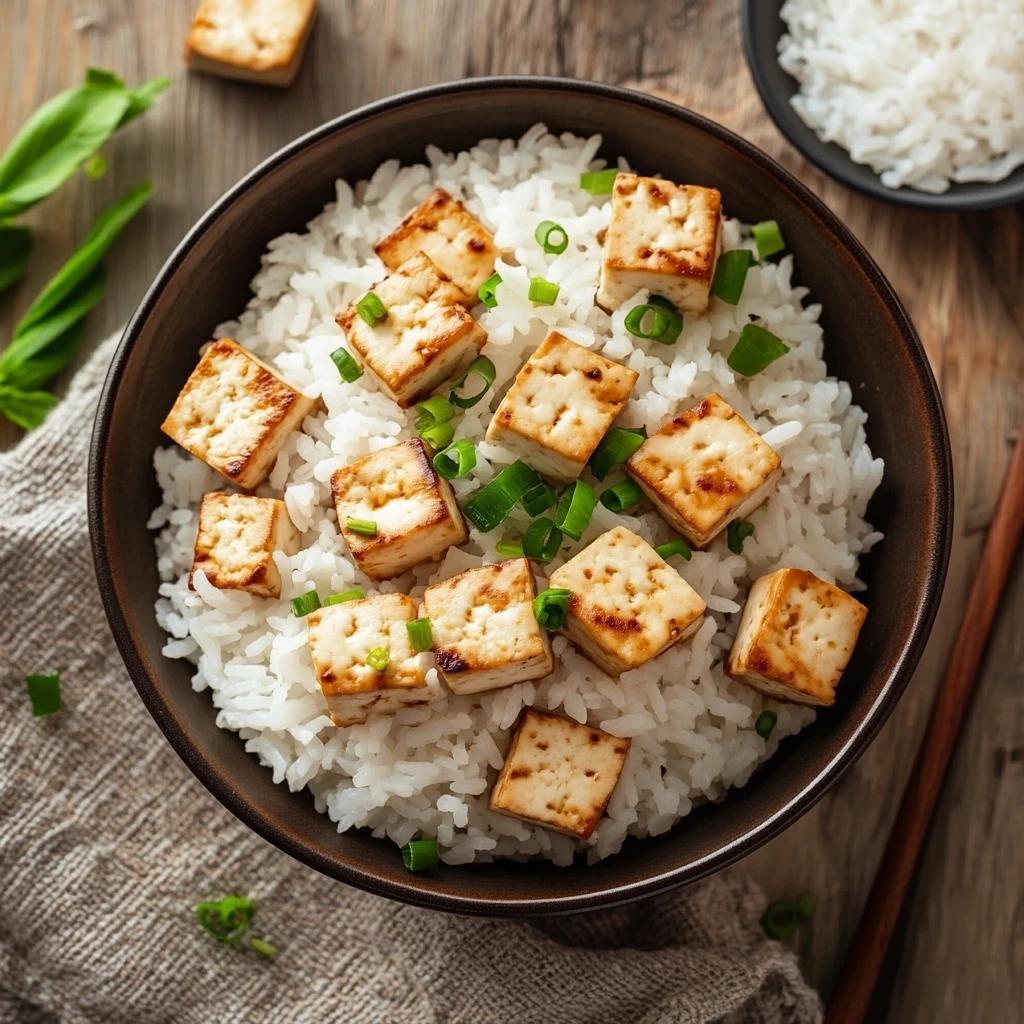
Rice in Weight Management
Although rice is often questioned in diet circles, its role depends on the portion and type. Brown rice, with its higher fiber content, aids in weight control by enhancing fullness and reducing calorie absorption. This makes rice, especially whole grains, a valuable part of a weight management diet. Thus, when we ask, “Is tofu and rice healthy?”, it’s important to consider rice’s beneficial properties in dietary planning.
Culinary Flexibility of Tofu
Tofu’s mild flavor and adaptability make it a versatile ingredient in cooking. It can be:
- Marinated, to take on any flavor
- Blended into smoothies for a protein boost
- Fried, baked, or grilled for varying textures
This versatility ensures that tofu can be included in a wide array of dishes, supporting varied and enjoyable healthy diets. So, “Is tofu and rice healthy?” Yes, and tofu’s culinary flexibility plays a big part in this.
Culinary Flexibility of Rice
Rice’s versatility is equally impressive. It serves as:
- A base for savory dishes
- A dessert ingredient in puddings and sweets
- A filling in wraps or sushi
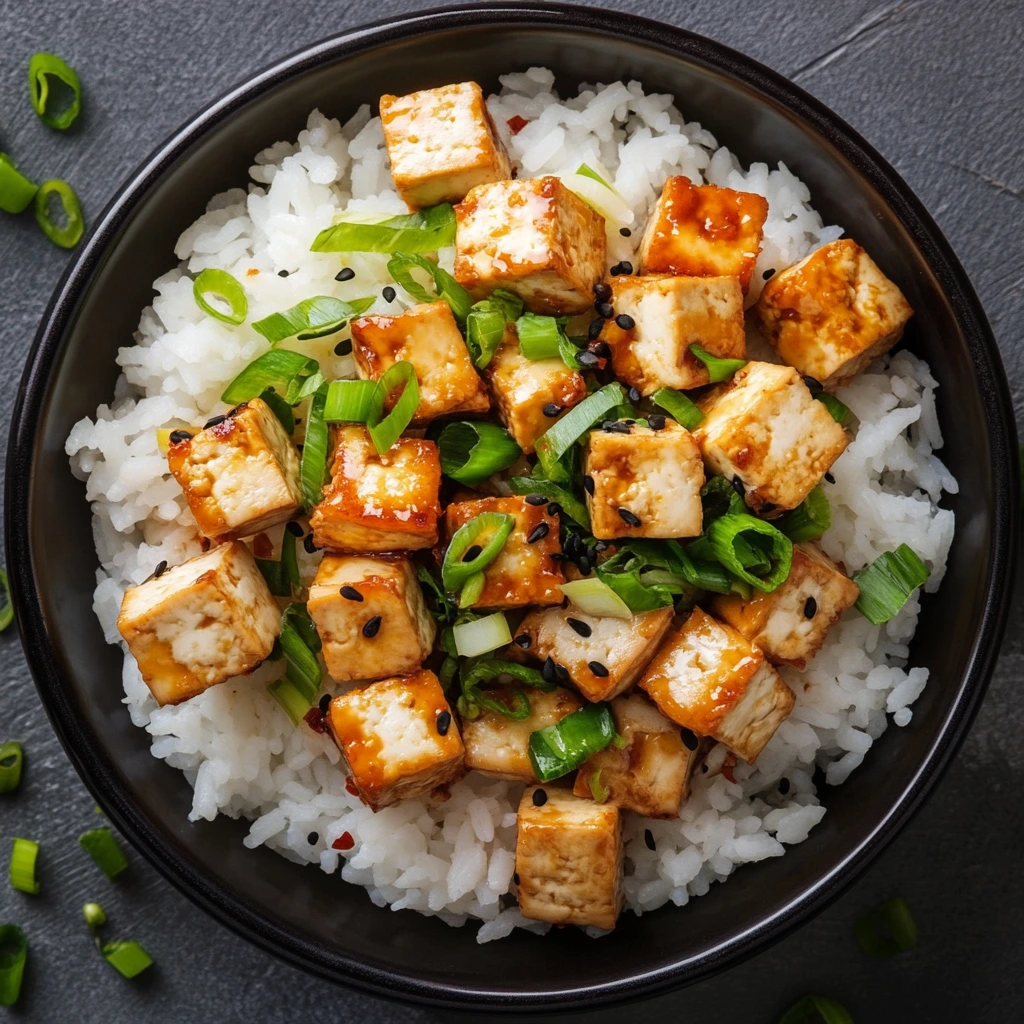
Given rice’s global culinary applications, its role in a healthy diet is undeniable. It pairs well with a multitude of ingredients, including tofu, enhancing both the flavor and nutritional value of meals. Thus, “Is tofu and rice healthy?” is affirmed not just by their individual attributes but also by their combined culinary potential.
Environmental Impact of Tofu Production
The production of tofu primarily involves soybeans, water, and a coagulant. Soybeans, the main ingredient, require considerable water and land, leading to significant environmental pressure. Additionally, the transformation from soybeans to tofu consumes energy, primarily in heating and cooling processes. However, compared to meat production, tofu still presents a more sustainable option. Recent innovations aim to further reduce the ecological footprint of tofu production by improving resource efficiency.
Environmental Impact of Rice Production
Rice cultivation has a distinctive environmental impact. The water requirement for rice is notoriously high, contributing to concerns over water scarcity. Methane emissions from rice paddies also add a considerable amount of greenhouse gases to the atmosphere. However, improvements like the System of Rice Intensification (SRI) have been developed to increase yields while reducing the environmental cost. This method reduces water use and methane emissions significantly, offering a more sustainable approach to rice farming.
Dietary Risks Associated with Tofu
While tofu is celebrated for its protein content and role in many plant-based diets, it is not without risks. The main concerns include:
- Allergens: Soy is a common allergen that can cause reactions in susceptible individuals.
- Hormonal effects: Soy contains phytoestrogens, which have been scrutinized for potential hormonal effects, although most research indicates that moderate consumption is safe for most people. Addressing these concerns through dietary balance and choice of soy products can mitigate potential risks.
Dietary Risks Associated with Rice
Rice, particularly white rice, has its set of dietary risks. The primary concerns include:
- High glycemic index: Regular consumption can lead to spikes in blood sugar levels.
- Arsenic content: Some rice sources can contain significant levels of arsenic. Choosing whole grain options like brown rice and varying one’s diet can help in minimizing these risks.
Tofu and Special Diets
Tofu is an excellent component of various special diets:
- Vegetarian and Vegan Diets: As a high-protein, plant-based food, tofu is a staple in vegetarian and vegan diets.
- Low-Carb Diets: Being low in carbohydrates, tofu is suitable for ketogenic and other low-carb diets. Its adaptability makes it ideal for people following specific dietary restrictions.
Rice and Special Diets
Rice is an incredibly versatile ingredient, seamlessly fitting into various special diets due to its natural properties and adaptability:
- Gluten-Free Diets: Rice is naturally gluten-free, making it an excellent carbohydrate source for individuals with celiac disease or gluten sensitivities. It’s a staple ingredient in gluten-free cooking, from rice noodles to rice-based flours used in baking.
- High-Energy Diets: As a dense source of carbohydrates, rice provides a quick and efficient energy boost. It’s particularly suitable for athletes, individuals engaging in high physical activity, or those requiring increased caloric intake.
- Low-FODMAP Diets: Rice, especially white rice, is low in fermentable oligosaccharides, disaccharides, monosaccharides, and polyols (FODMAPs). This makes it a gentle choice for people managing irritable bowel syndrome (IBS) or other digestive concerns.
- Plant-Based Diets: Rice serves as a cornerstone of plant-based diets, offering a filling and affordable protein and carbohydrate option. Combined with beans, lentils, or tofu, rice provides a complete protein source for vegans and vegetarians.
- Weight Management Diets: Depending on the preparation method and portion size, rice can fit into both weight loss and weight maintenance plans. For example, brown rice, with its higher fiber content, promotes satiety and supports digestive health.
- Allergen-Free Diets: Unlike many grains, rice is free from common allergens like wheat, nuts, and dairy, making it a safe option for individuals with multiple food allergies.
Best Practices for Cooking and Storage
To maximize the health benefits of tofu and rice, proper cooking and storage techniques are crucial. For tofu:
- Pressing: Removes excess water and improves texture.
- Marinating: Enhances flavor, making it more appetizing. For rice:
- Rinsing: Reduces starch and arsenic content.
- Proper storage: Prevents spoilage and maintains nutritional quality. These practices ensure that tofu and rice provide their best nutritional value.
Comparative Analysis: Tofu vs. Rice in a Healthy Diet
When evaluating tofu and rice for a healthy diet, consider their nutritional profiles. Tofu is high in protein and low in carbs, making it excellent for weight management and muscle building. Rice, particularly in its whole grain form, offers valuable fiber and energy. Both have their place in a balanced diet, but their benefits are maximized when they are part of a varied diet that includes a wide range of nutrients.
In conclusion, tofu and rice both offer significant health benefits when included in a balanced diet, considering their environmental impacts and dietary risks. Understanding these factors helps in making informed choices that support both health and environmental sustainability.

